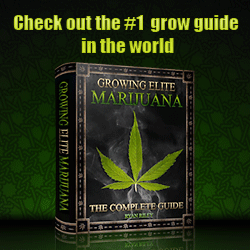Cannabis and Pregnancy – Dangerous or Beneficial?
![]() Kent Mao, Contributor
Kent Mao, Contributor
Waking Times
While you might be hard-pressed to find a doctor that would recommend the use of cannabis during pregnancy, marijuana is the most commonly used illicit drug among expectant mothers (1). In fact, some studies suggest that up to 30% of pregnant women within certain demographics could be ingesting the herb in one way or another (2).
So, is consuming cannabis safe during pregnancy? Well, like most things cannabis-related, the answer is not as clear-cut as one might hope. Still, research over the past few decades has revealed a number of surprising — or not so surprising, depending on which side of the fence you sit — revelations about cannabis use during pregnancy.
The Endocannabinoid System and Fetal Development
Since the late 90’s, scientists have come to realize that every human possesses chemicals in their body that mimic the very same actions as THC — the primary compound found in cannabis. These chemicals are known as endocannabinoids and, together with the cannabinoid receptors that they bind to, make up what is known as the endocannabinoid system (3).
While the endocannabinoid system plays a variety of roles in the adult body, it has also been identified as a key regulator of fetal development. In fact, experts believe that endocannabinoids – specifically anandamide and 2-arachidonoylglycerol (2-AG) – are involved with everything from uterine implantation of the embryo to the formation of neural connections (4). But whether cannabis acts to disrupt these activities is less than clear.
What scientists do know is that THC can cross the placental barrier, meaning that cannabis compounds will inevitably reach a mother’s unborn child through the blood stream. Furthermore, THC has also been detected in the breast milk of cannabis-using mothers, suggesting that the sharing of cannabinoids does not stop after birth (5).
But perhaps more interesting is research that demonstrates a role of endocannabinoids in early feeding behavior. Indeed, experts believe that endocannabinoids — which are also present in breast milk — act to aid in the suckling instincts and appetite control of newborns (6).
Cannabis Use and Birth Outcomes
Despite the important role that endocannabinoid system activity plays from embryonic stages to post-birth, research has yet to identify a single negative in terms of birth outcome. Indeed, decades of research have revealed no association between cannabis use during pregnancy and premature birth, miscarriage, or major physical abnormalities (including birth weight) (2,7). On the other hand, some studies have even shown a variety of slight, yet significant benefits.
For instance, a study published in 1991 found that maternal cannabis use resulted in babies that scored higher on measures of nervous system stability and reflexes at 30 days old (8). Furthermore, more frequent cannabis use was linked to superior auditory, visual and tactile responses as well as higher alertness, lower irritability and fewer startles and tremors in month-old infants.
Cannabis Use and Cognitive Development
Perhaps the greatest source of controversy on the issue of cannabis use during pregnancy stems from 2 long-term studies that followed children of cannabis users from birth to early adulthood. These were the Ottawa Prenatal Prospective Study (OPPS) and the Maternal Health Practices and Child Development Project in Pittsburgh (MHCPD), which began in 1978 and 1982 respectively.
Once again, neither of these studies identified any relationship between cannabis use during pregnancy and abnormal birth outcomes. On the other hand, both studies seemed to identify inconsistent and divergent effects of maternal cannabis use on later cognitive development. But how valid these apparent associations are remains questionable.

For example, the OPPS study failed to identify differences between children of cannabis users and non-users in motor, language and cognitive development at ages 1, 2 and 3 (9). On the contrary, the MHCPD study suggested a link between daily cannabis use during the third trimester with lower mental scores at 9 months old (10). But when tested again at 18 months old, the effect seemed to disappear. Likewise, the OPPS study found a discrepancy in verbal and memory tests between the cannabis use and non-use groups at age 4, which was once again gone by ages 5 and 6 (11).
Such was the case for various other discrepant findings that the study authors interpreted as a sign that cannabis using mothers were putting their children at risk of later cognitive impairments. But from a scientific standpoint, such a conclusion is simply not accurate. You see, when it comes to research, a link identified by one study is essentially meaningless unless it can be replicated and confirmed by others. Yet in both of these cases, each study’s associations seemed to contradict with the other’s, not to mention their own data when it came to administering the same tests at a later time.
To top it off, neither study was able to identify significant differences in overall intelligence or IQ scores between children of marijuana users and non-users (12). In that regard, expecting mothers should have little to worry about.
This is a controversial issue, but one worth vetting considering the number of people estimated to partake in cannabis use while pregnant and/or breast-feeding.
About the Author
Kent Mao is a contributor to Waking Times and the editor of TruthOnPot.com, an online resource for medical marijuana facts, information and research. TruthOnPot.com actively engages in the online discussion of marijuana research and policy. You can learn more by visiting www.truthonpot.com. Kent is also a contributor to Waking Times.
Disclaimer: This article is not intended to provide medical advice, diagnosis or treatment. Views expressed here do not necessarily reflect those of WakingTimes or its staff.
This article is offered under Creative Commons license. It’s okay to republish it anywhere as long as attribution bio is included and all links remain intact.
~~ Help Waking Times to raise the vibration by sharing this article with the buttons below…
